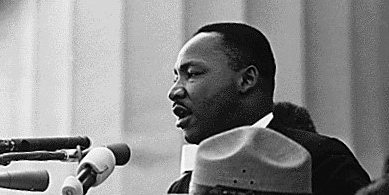"Do not pray for easy lives, pray to be stronger men."
JFK
![]()
Today I’m angry.
Dismayed. Disappointed.
"What's happening to leadership?" I'm wondering.
I’ve been reading a post called #Sorrynotsorry: The New Girl Power?. The author, Rachel Simmons, emphasizes we are not teaching the right skills for young women to navigate and succeed. In fact she says we may be doing a "profound disservice" to girls by teaching them to speak up, and that women are penalized for showing an excess of confidence.
We are out of step with what girls and young women need to navigate, much less succeed, in a world still ambivalent about women's power.
We are teaching girls to speak up in the world we wished they lived in, not the one they actually inhabit.
Her solution?
Ms. Simmons advocates smiling, using communal "I-We" language, and being upfront about the cost of assertiveness: lower pay, less "likeability", and loss of social status.
Likeability? Loss of social status? Are these the career goals we're teaching girls?!
Likeability is a luxury, not a goal.
Have we forgotten to teach courage?
Are our values so clouded by career progression, and corporate titles that we are failing as leaders?
I agree we MUST be aware of the world we live in. But not to navigate it safely.
To change it profoundly.
There is no doubt we live in a world of significant gender inequity.
Not just in the workplace, but at the most fundamental levels.
According to the UN, 35% of women, more than 1 in 3, will experience some form of violence. In some countries, this number is 70%. Violence is not the only barrier. Women also face a huge literacy gap, and make up two thirds of the world's illiterate adults.
Likeability will not close these gaps.
Courage will.
We are out of step if we fail to teach courage, conviction and character.
Malala Yousafzai, 17, is a passionate advocate of education for girls, and the youngest recipient of the Nobel Peace prize. She was 15 years old when she was shot and nearly killed by a Taliban gunman who saw her as a threat.
Her offense?
Demanding her right to attend school.
Ms Yousafzai was well aware of the risks, yet she still chose to speak out.
I had really 2 options: One was not to speak and wait to be killed. And the second was to speak up and then be killed.
I chose the second one.
Where does courage come from?
In her Nobel Peace Prize acceptance speech, Ms. Yousafzai thanks her father for letting her fly, encouraging her to achieve her goals, and believing that a girl has the power to go forward in her life.
We teach courage by encouraging girls to do their best, be their best and by believing in them.
Navigation is not enough
This is the call for courageous leadership.
Courage comes from mothers, fathers, sisters, brothers, educators and role models.
Courage comes from us.
Girls need our conviction, not our career success. They need us to be strong, not safe. They need us to speak up, challenge inequity and to fight for what is right.
And most importantly, they need our courage to teach them to be courageous.
Here is Malala Yousafzai's Nobel Peace Prize acceptance speech.
Looking for more ways to speak out? Take a look at these Evoke posts
 Don't Wish for Power; Wish for Influence
Don't Wish for Power; Wish for Influence
 How to Find the Courage to Tell a Hidden Story
How to Find the Courage to Tell a Hidden Story
 Stand Up to Silence and Give Your Voice to Those Without
Stand Up to Silence and Give Your Voice to Those Without
Check out the Leadership Essentials page for more leadership insights
Follow Evoke.pro on LinkedIn.
Photo/iStock

